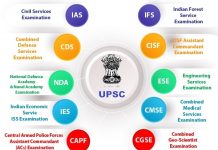About Psychiatrist & how to become a psychiatrist in India
A career as a psychiatrist comprises prevention, diagnosis, and treatment of mental sickness. They can suggest medicines unlike psychologists, and proposal a range of treatments such as medicine, general care counting assessing your physical health and effects of medication, psychological conducts, and brain inspiration therapies such as electroconvulsive therapy (ECT).
It is an thrilling and interesting career path that allows you to make a real change in the lives of people who are suffering from certain mental disorder. It is too a good field to follow if you are mainly interested in knowing how the mind works.

Eligibility for How to become a psychiatrist in India
- One must have finished their Class 12 level of education in Science field with Biology as one of the required subjects from a known Indian Board.
- After that, applicants will have to complete or qualify an MBBS and then MD.
- Candidates can also choose for a diploma in Psychiatric medicine (DPM) from a familiar educational institute.
- MD is a three-year option while the diploma option is of a 2-year duration.
- To one side from this, the National Board of Examinations also has a Diploma of National Board Exam (DNB).
- This DNB is seen as alike to an MD degree.
Skills Required for How to become a psychiatrist in India
- Compassion
- Empathy
- Ability to treat patients with respect and understanding
- Resilient to work in challenging situations
- Ability to anticipate issues
- Able to monitor developing situations
- Analytical approach
- Scientific approach
- Lateral thinking
- Capability to work with flexible
- Ability to motivate other team members
Types of Job Title role Psychiatrist
roles for How to become a psychiatrist in India.
While learning psychiatry, you will have the choice of choosing from a diversity of specialisations that can help you choose what kind of a psychiatrist you want to be. Further down is the list of numerous job profiles:
Substance Abuse Therapy
If you select to specialise in substance abuse therapy, you will compact with patients who have dependencies on substances such as alcohol and drugs. You will be accountable for treating these patients separately or in groups, make recovery plans for them with their personal members and prevent upcoming substance abuse. You can effort in a substance abuse rehabilitation centre.
Child and Adolescent Psychiatry
Child and Adolescent Psychiatrists deal with youngsters (up to the phase of 18) and their families. The child and adolescent psychiatrist does a diagnostic exam to measure the current problem and evaluate if the problematic is genetic, physical, cognitive, educational, developmental or connected to family, society or peer pressure.
Adult Psychiatry
This division of psychiatry deals with the handling of adult disorders (people who are above the age of 18). Liable on the disorder, diagnoses can comprise anxiety disorders, mood disorders, general psychiatry, addiction medicine and any other matters that cause mental stress.
Psychosomatic medicine
Psychosomatic medicine, which is similarly known as consultation-liaison psychiatry includes a complex diagnosis and handling of psychiatric symptoms and disorders. Psychosomatic medicine psychiatrists counsel patients regarding sensitive and psychiatric issues, which affect their health. They generate care plans, counting the prescription of medicines, and run diagnostic tests.
Emergency Psychiatry
Emergency psychiatry contracts with the application of psychiatry in emergency circumstances. Instances of such situations comprise attempted suicide, depression, psychosis, substance abuse or violence. Upkeep of patients who are in need of intervention comprises crisis stabilization of disorders such as acute or chronic mental disorders.
Geriatric Psychiatry
Geriatric Psychiatry emphases on the evaluation, prevention, diagnosis and treatment of emotional and mental illness in the elderly. Certain of these disorders comprise dementia, anxiety, depression, and schizophrenia. The geriatric psychiatrist is accountable for listening and responding to the requirements and concerns of older adults and working out a treatment plan.
Employment Sector/Industry for Psychiatrist
There are sufficiently of job openings for psychiatrists as it is a lucrative job. Psychiatrists can seek employment in:
- Hospitals
- Rehabilitation centres
- Clinics
- Private practice
- NGOs
Top Recruiting Companies for Psychiatrists
Some of the foremost hospitals where one can work as a psychiatrist are
- National Institute of Mental Health and Neuro Sciences (NIMHANS)
- PGIMER, Chandigarh
- Institute of Behaviour and Allied Sciences, New Delhi
- Dr. Vidyasagar Institute of Mental Health, Amritsar
- Antara, Kolkata
- World Brain Center Hospital
- State Mental Health Institute, Dehradun
Responsibilities of a Psychiatrist
The responsibilities of a Psychiatrist include the following:
- Handling of sudden mental illness
- Help with management a long-term mental health condition
- Work with patients on an individual basis or with their partners or families
- Offer second opinions/advice
- Give advice about lifestyle ups and downs
- Admit patients to a hospital, if required
Pay Scale/Salary of Psychiatrist
The regular salary in this career can range from Rs. 123,252 – Rs 1,957,428. This number be contingent on the years of experience one has in this field and too the institute from where you have deliberate. The salary package made by Psychiatrists in India based on their experience is mentioned further down:
| Years of Experience | Salary Package |
| Entry Level | INR 9.07 LPA |
| Early Career | INR 9.15 LPA |
| Mid-Career | INR 10 LPA |
| Experienced | INR 12 LPA |
| Late Career | INR 15 LPA |
.
Books & Study Material to Become Psychiatrist
Apart from learning the course curriculum, you can also mention a few books to gain extra in-depth knowledge of the topic. Listed further down are certain of the best books and study material on psychiatry:
- Kaplan and Sadock’s Clinical Psychiatry and Synopsis of Psychiatry
- Effective Treatments in Psychiatry (Kenneth R. Silk, Peter Tyrer)
- Review of Psychiatry by Dr. Praveen Tripathi
Pros of becoming a Psychiatrist
This profession is a bit stimulating as psychiatrists are faced with the problematic task of diagnosing and treating patients with mental health complaints. Though, the compensations that it offers are worth the efforts and the challenge. Let’s take a look at certain of the pros
Flexible work environment
Psychiatrists have the choice of working in different environments such as psychiatric hospitals, mental health surgeries, NGOs, clinics or can have their own private rehearsal. They have the flexibility to work in a diversity of work settings and the work environment is typically calm and private.
Growth Opportunities
The field of psychiatry has numerous opportunities for growth and career progression. Psychiatrists can also select to mentor scholars, teach at universities or undertake research studies.
Helping People
Psychiatry is a job which is devoted to helping others. So, the gratification and job gratification that one gets out of it can be actually rewarding.
High Earning Job
Psychiatry is a high reimbursing job. Psychiatrists who have their own private preparation earn even improved than those who work in hospitals or clinics. The monetary welfares can be quite rewarding.
Cons of becoming a Psychiatrist
Though psychiatry is a satisfying field but just like the whole thing, there are certain difficulties to being a psychiatrist. Some of those are:
Stressful Job
Dealing with patients can be demanding and stressful. One of the main challenges of this is the participation with people and managing their mental and emotional scuffles. They have to deal with people from diverse backgrounds and with various kinds of illnesses. Psychiatrists have to master the art of dealing effectively in such circumstances and practice stress management techniques.
Erratic Hours
Though one of the rewards is that you have a flexible schedule but at the similar time if you have your own practice, psychiatrists have to be on call and be available to patients. The patient issue can rise even at an inconvenient time.
Work-life balance
Apart from conference patients and help with their diagnosis and conducts, psychiatrists also have to put in work to appraisal the patient notes, and also join after-hours emergency calls from patients. This hampers the work-life balance, leaving psychiatrists with less time for their individual commitments.
Thats it in How to become a psychiatrist in India. Also Check AP ICET application form.
To know more at Education in India.




































